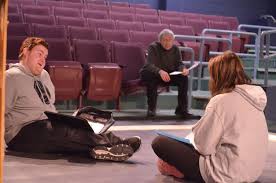

Directing a new work for the stage can be an exciting, interesting, and overwhelming experience. There are specific challenges that come with the new play process that simply are not associated with established works. The fact is the first time a play is being produced those involved in the process are defining the playwright’s script through each of their efforts associated with that production.
That means that every person involved, actors, designers, director and others, carry a wealth of responsibility in creating the first live performances of that show. Here are some tips that will help directors (and others) as they approach putting a new play on the boards for the very first time.
What’s the Play About?

Of course, one of the primary jobs of any theatre artist, including the director, is to determine what the premise, theme, or focus of the play is. That’s one thing when a play has a production history, as there’s a lot of information around about the play due to previous productions. Also, if a play has been given a first-class production, as an example on Broadway or the West End, then many of the problems have been worked out.
But a new play has not been produced, and it’s important that the director communicate to the playwright what they think the center of their play is. The writer needs to be open with the director, noting if they feel they are on-target, totally wrong, or a little off. If there is disagreement, then the play may need rewriting or the wrong director is involved with the show (and should be changed), or both.
Have an Early Reading

Meeting with the cast a few months or weeks before rehearsals start is always a great idea when producing a new play. Getting the lines out into the open air, hearing the script read aloud, and discussing it will go a long way in determining if rewrites may be needed, understanding what is working correctly, and creating an atmosphere for collaboration.
Consult with the Playwright
When in rehearsal it is often best to have the playwright there and to consult with them on any questions you may have, on ideas that may play against what has been written, or on possible cuts or rewrites. Often the playwright can be helpful in offering insights regarding the dialogue, characters, and progression of the play.
Don’t Try to Make it Your Own

As a director, it is important to remember that you did not write the play; someone else did, and it’s your job to interpret it. Don’t try to take the play over by making it into something it’s not. Working collaboratively with the dramatist to address any weaknesses and fix them is the best way to go. It is, after all, not about any one person; putting on a new show is about giving that play the best chance to be heard and seen as an honest piece of theatre.
Excitement of New Work
Directing a new play is a very exciting experience, and when one is bringing such a work to light for the first time, the process involves a lot of responsibility. Take that responsibility seriously, go into the process prepared, and always respect and communicate with the dramatist. After all is said and done, it is their play.

 Random Item
Random Item